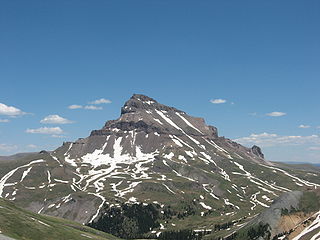
The San Juan Mountains is a high and rugged mountain range in the Rocky Mountains in southwestern Colorado and northwestern New Mexico. The area is highly mineralized and figured in the gold and silver mining industry of early Colorado. Major towns, all old mining camps, include Creede, Lake City, Silverton, Ouray, and Telluride. Large scale mining has ended in the region, although independent prospectors still work claims throughout the range. The last large scale mines were the Sunnyside Mine near Silverton, which operated until late in the 20th century and the Idarado Mine on Red Mountain Pass that closed down in the 1970s. Famous old San Juan mines include the Camp Bird and Smuggler Union mines, both located between Telluride and Ouray.

Telluride is the county seat and most populous town of San Miguel County in the southwestern portion of the U.S. state of Colorado. The town is a former silver mining camp on the San Miguel River in the western San Juan Mountains. The first gold mining claim was made in the mountains above Telluride in 1875, and early settlement of what is now Telluride followed. The town was founded in 1878 as "Columbia", but due to confusion with a California town of the same name, was renamed Telluride in 1887 for the gold telluride minerals found in other parts of Colorado. These telluride minerals were never found near Telluride, but the area's mines for some years provided zinc, lead, copper, silver, and other gold ores.

Vincent Saint John (1876–1929) was an American labor leader and prominent Wobbly, among the most influential radical labor leaders of the 20th century.

The Molly Maguires were an Irish 19th-century secret society active in Ireland, Liverpool and parts of the Eastern United States, best known for their activism among Irish-American and Irish immigrant coal miners in Pennsylvania. After a series of often violent conflicts, twenty suspected members of the Molly Maguires were convicted of murder and other crimes and were executed by hanging in 1877 and 1878. This history remains part of local Pennsylvania lore and the actual facts much debated among historians.
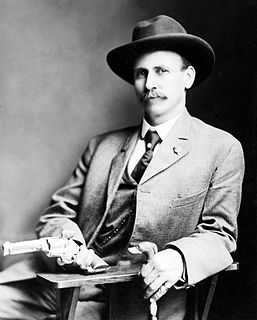
Charles Angelo Siringo was an American lawman, detective, bounty hunter, and agent for the Pinkerton National Detective Agency during the late 19th and early 20th centuries.
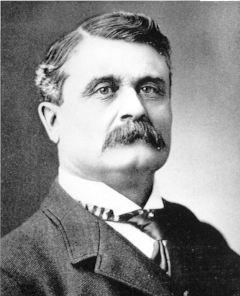
James Bradley Orman was an American politician and railroad builder. He served as the 12th Governor of Colorado from 1901 to 1903. He was a Democrat.

David Courtney Coates was a publisher and printer, labor union leader and socialist politician who served as the 11th Lieutenant Governor of Colorado, secretary and president of Colorado's State Federation of Labor, president of the American Labor Union and chairman of the National Party.

James McParland was an American private detective and Pinkerton agent.
Morris Friedman was, until 1905, the private stenographer for Pinkerton detective James McParland. Friedman came to the attention of the public when he published an exposé of anti-union actions by the private detective industry which was called The Pinkerton Labor Spy. The book focused in particular on how mining and ore milling companies used spies during the Colorado Labor Wars.
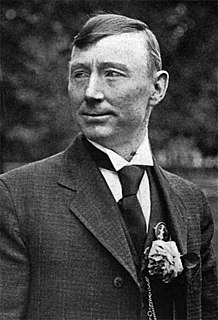
Steve Adams, sometimes known as Stephen Adams, was a miner and member of the Western Federation of Miners (WFM) in the early 1900s. Adams was named as an accomplice in several murders by Harry Orchard, who said that the murders were done at the orders of the WFM leadership. Adams was tried three times for murder, but was never convicted.
Orrin N. Hilton (1849-1932) was a Denver judge and attorney who participated for the defense in several famous court cases. Judge Hilton successfully defended George Pettibone of the Western Federation of Miners when Pinkerton detective James McParland accused him of conspiracy to murder former Idaho governor Frank Steunenberg.

The Colorado Labor Wars were a series of labor strikes in 1903 and 1904 in the U.S. state of Colorado, by gold and silver miners and mill workers represented by the Western Federation of Miners (WFM). Opposing the WFM were associations of mine owners and businessmen at each location, supported by the Colorado state government. The strikes were notable and controversial for the accompanying violence, and the imposition of martial law by the Colorado National Guard in order to put down the strikes.
Labor spying in the United States had involved people recruited or employed for the purpose of gathering intelligence, committing sabotage, sowing dissent, or engaging in other similar activities, in the context of an employer/labor organization relationship. Spying by companies on union activities has been illegal in the United States since the National Labor Relations Act of 1935. However, non-union monitoring of employee activities while at work is perfectly legal and, according to the American Management Association, nearly 80% of major US companies actively monitor their employees.
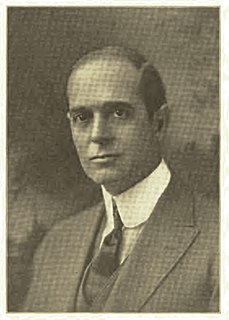
Bulkeley Wells, also spelled Buckeley Wells, was an American businessperson involved in mining. Born in Chicago to businessman Samuel Edgar Wells and Marry Agnes Bulkeley, Wells was educated at Roxbury Latin School and at Harvard University. He married into the wealthy family of Colonel Thomas L. Livermore, to daughter Grace Livermore. He moved to Telluride, Colorado, and joined the executive board of the Telluride Mining Association, and headed up the San Miguel County Citizens' Alliance (SMCCA). He had a deputy sheriff's commission, and was captain of Troop A of the Colorado National Guard. He was also a Mason, and an Elk. Wells became president and manager of the Smuggler-Union Mining Company after the murder of Arthur L. Collins.
In the United States, a Mine Owners' Association (MOA), also sometimes referred to as a Mine Operators' Association or a Mine Owners' Protective Association, is the combination of individual mining companies, or groups of mining companies, into an association, established for the purpose of promoting the collective interests of the group. Such associations are sometimes referred to as MOAs, however, in some cases they may be designated by the state, district, or locale, such as the Cripple Creek District Mine Owners' Association (CCDMOA).

Arthur Launcelot Collins was a British metallurgist, mining engineer and mine manager of properties in Mexico and the United States. He was born 8 July 1868 in Truro, Cornwall, England, the son of a prominent mining expert, Joseph Henry Collins, and brother of Henry, George, and Edgar Collins and William Collins, the Bishop of Gibraltar. Joseph H. Collins founded, and with his sons Henry, Arthur, and George, operated J. H. Collins & Sons, Mining and Metallurgical Engineers, an international mining consulting business headquartered in London, England.
Citizens' Alliances were state and local anti-trade union organizations prominent in the United States of America during the first decade of the 20th century. The Citizen's Alliances were closely related to employers' associations but allowed participation of a broad range of sympathetic citizens in addition to those employers apt to be affected by strikes. Originating in the American state of Ohio as the "Modern Order of Bees," the Citizens' Alliance movement spread westwards, playing a particularly important role in labor relations in the states of Colorado and California. Citizens' Alliance groups often worked in tandem with smaller but better financed employers' organizations interested in establishing or maintaining open shop labor conditions, including the Mine Owners' Associations (MOA) or the National Association of Manufacturers (NAM).
George W. Riddell was a Pinkerton labor spy who infiltrated the Western Federation of Miners (WFM) in Telluride, and later became president of the Eureka miners union in Utah. Riddell was forced to resign when Morris Friedman published the book The Pinkerton Labor Spy.
The Pinkerton Labor Spy is a nonfiction book published in 1907 as an exposé of intrigue and abuses by the Pinkerton Detective Agency in general, and by chief agent James McParland in particular.

Fort Peabody was a military post in southwestern Colorado, situated at 13,365 feet elevation on the county line between Ouray and San Miguel Counties, making it the highest historical post of its kind in the United States. It was added to the National Register of Historic Places on March 30, 2005 as significant to the state and nation's labor history.